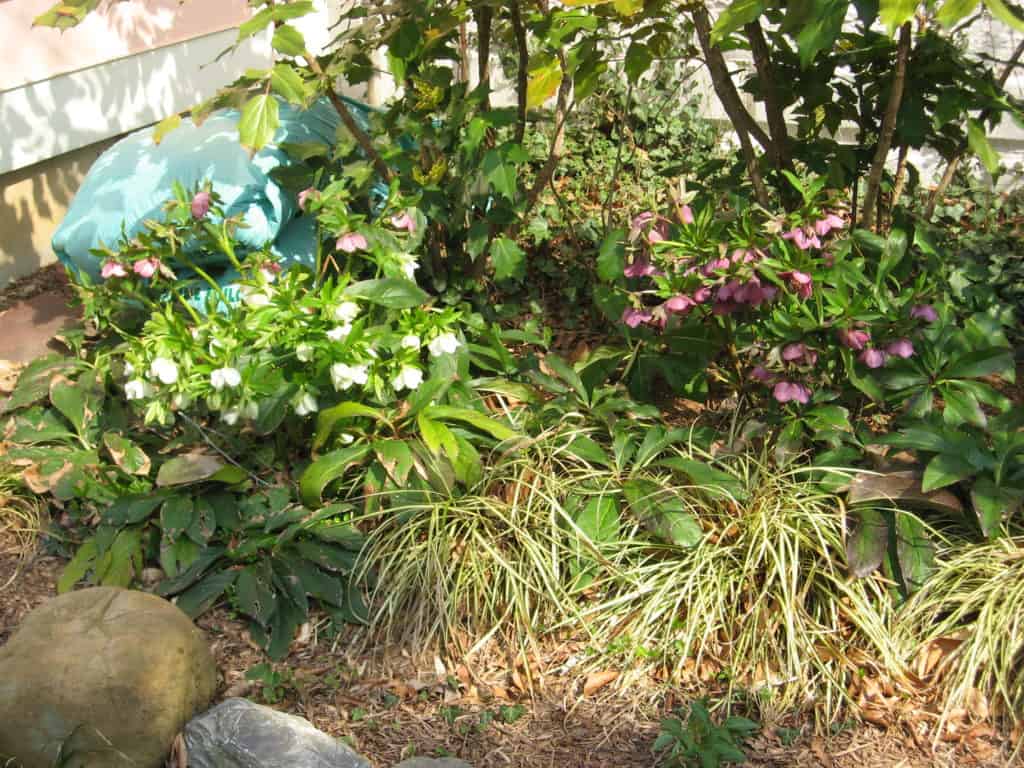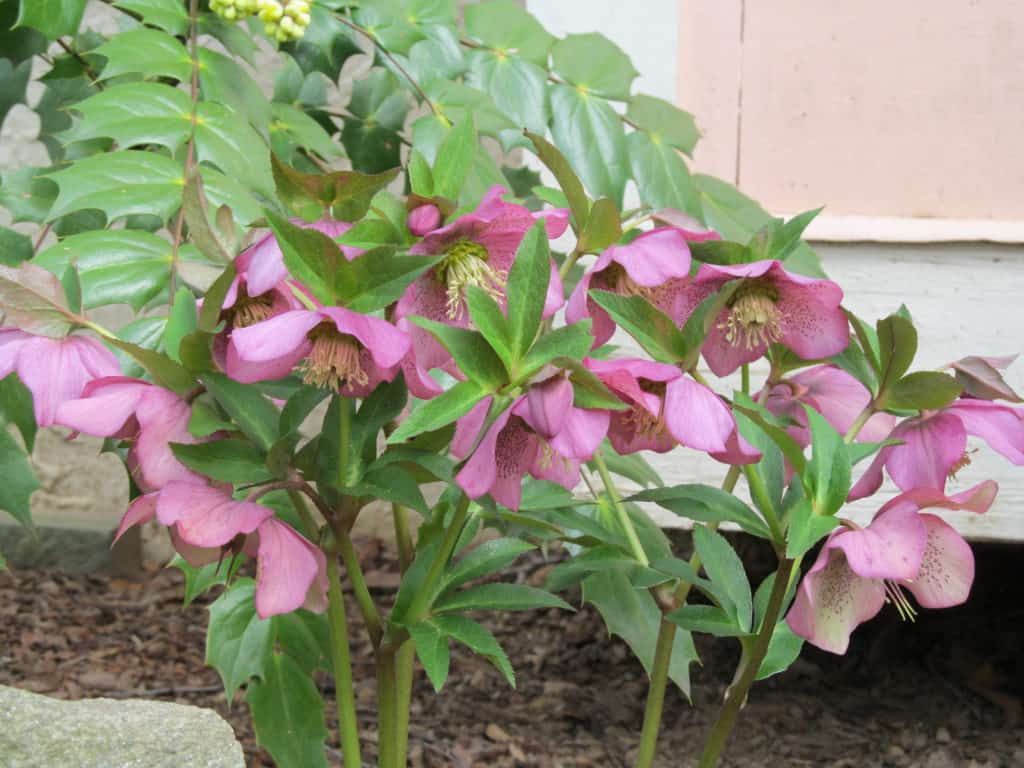HONEY BEE POWER PLANTS
By Marie Rojas
Hellebores are the stalwarts of the shade garden. Blooming late winter – spring, they’ve been known to lift this gardener’s spirit! They also provide a much-needed nectar and pollen source for honey bees that are out foraging any time we get one of those nice warmish winter days.
They have dark, leathery, evergreen leaves and nodding flowers in white, rose, green, or purple. Depending on the winter and the species, blooms may begin in December and continue through April! Below are some of my favorite species. Because their leaves produce poisonous alkaloids, they are usually ignored by deer and rabbits.
Christmas Rose – Helleborus niger
• 12 – 18” tall.
• 2 star nectar and pollen rating per Garden Plants for Honey Bees.
• White, saucer-shaped flowers with yellow stamens; may begin to bloom as early as Christmas in sheltered locations and continues through February.
• A little bit fussy about climate extremes, like drought or soggy soil; site this one in a very well-drained, sheltered location in shade.
Bearsfoot Hellebore – Helleborus foetidus
• 18 – 24” tall.
• 3 star nectar and pollen rating, the highest of all the Hellebores!
• Deeply divided, dark green leaves.
• Clusters of small, cup-shaped, light green flowers rimmed with purple, beginning in February.
• Not as fussy as Christmas Rose, site in shady locations with well-drained soil.
Lenten Rose – Helleborus orientalis or H. x hybrid
• 15 – 18” tall.
• 2 star nectar and pollen rating.
• Saucer-shaped flowers from white, pink, and purple, often speckled.
• Very long bloom time, lasting up to 8 weeks, beginning around March.
• The easiest Hellebore to grow, will tolerate heavy shade and dry soil.


